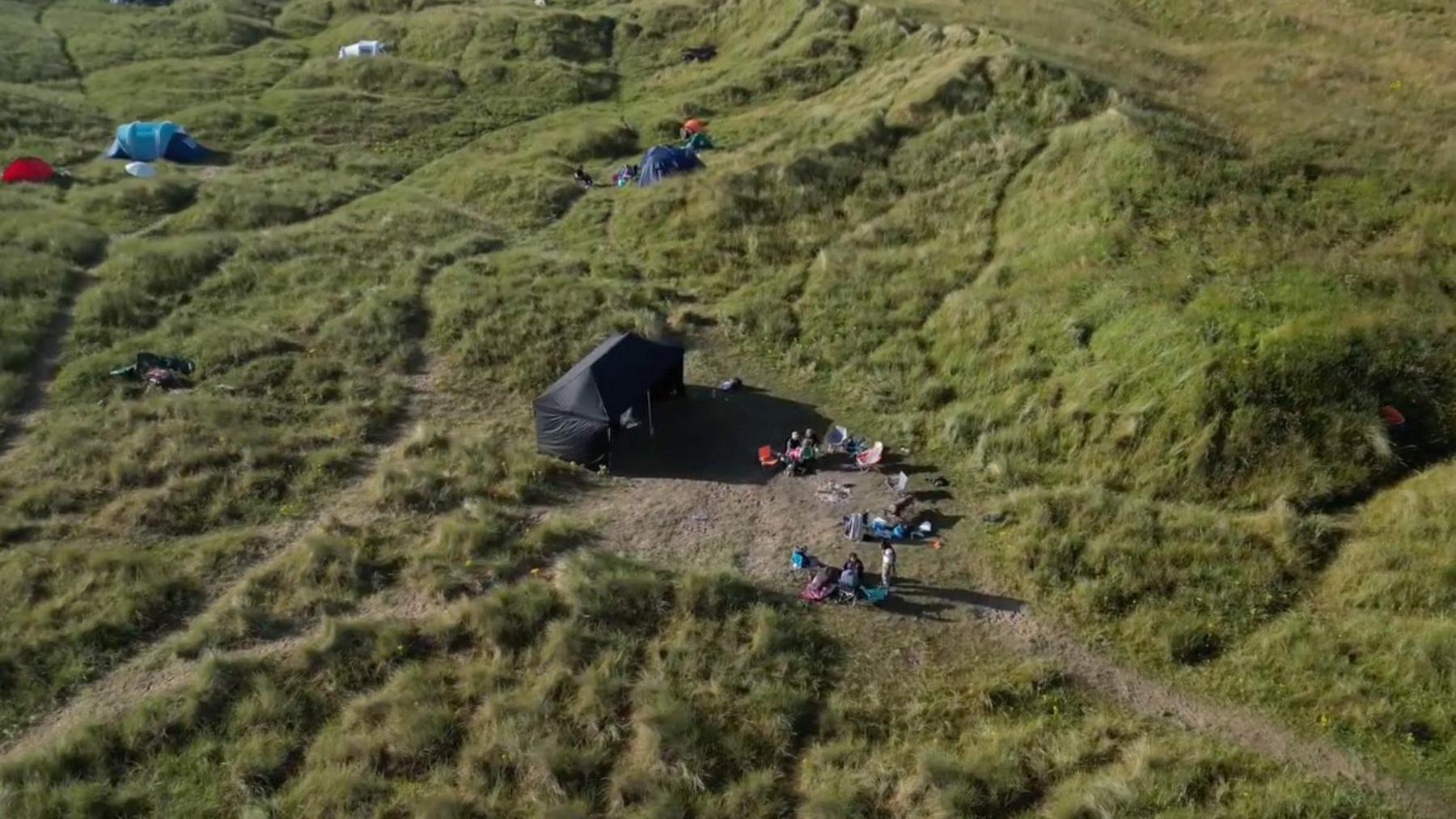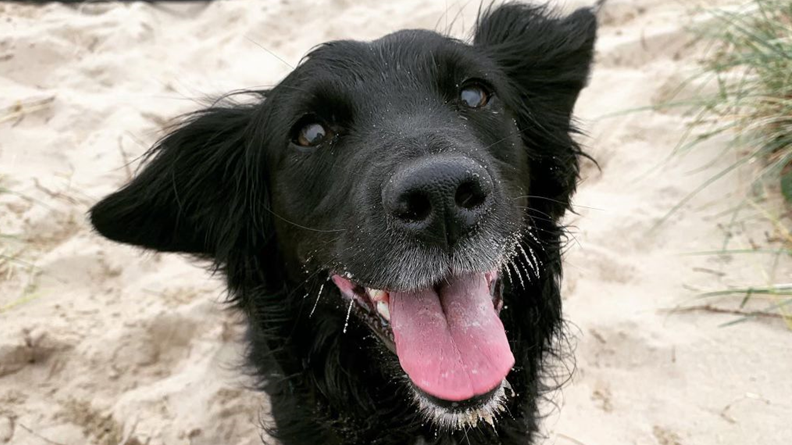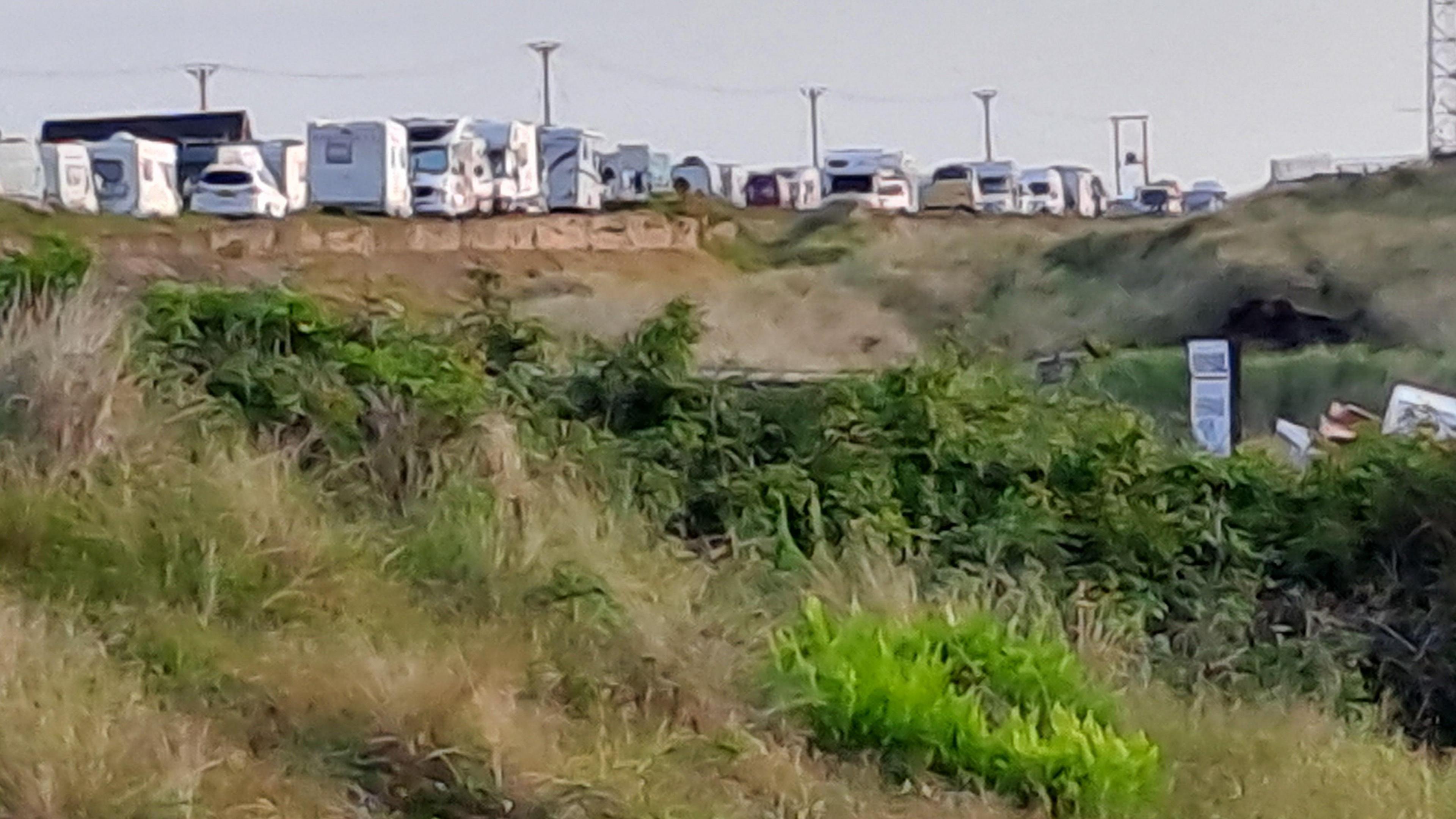Litter left by wild campers 'spoiling' beach

Wild campers are a "common" problem at Druridge Bay during the summer months
- Published
Wild campers are spoiling a beach by leaving litter and other waste, locals have said.
Councillor Scott James Dickinson said littering at Northumberland beauty spot Druridge Bay, was a common problem in the summer.
Rebecca Ashworth-Earle, 33, said her spaniel Luna recently became ill after a walk on the beach and that her vet suspected the dog had eaten human faeces.
The National Trust said Druridge Bay was cared for by multiple owners but it was aware of concerns about littering and fly-camping which "can cause significant harm to landscapes, wildlife and communities".
Ms Ashworth-Earle said her dog became seriously ill but was now on the mend after undergoing treatment.
She said: "I know dogs aren't for everyone, and they get a bad rep a lot of the time, but the last time I checked my dogs don't bring cans."

A vet said Luna became unwell after eating human waste left on the beach
It is illegal to wild camp at the bay's dunes but there are several places to camp legally nearby.
Labour ward councillor for the area, Mr Dickinson said large numbers descended on the beach every summer and littering was "unfortunately" a regular occurrence.
"I obviously encourage people to come to Druridge Bay and enjoy it but come here and enjoy it respectfully," he added.
"Respect the fact that local people live here all year round."
Northumberland County Council declined to comment on the grounds that the beach was managed by the National Trust.
Meanwhile, the trust has appealed to the public to take litter home, not light barbecues or fires and to use designated campsites for overnight stays.
Follow BBC North East on X (formerly Twitter), external, Facebook, external and Instagram, external. Send your story ideas to northeastandcumbria@bbc.co.uk.
Related stories
- Published5 May 2024
